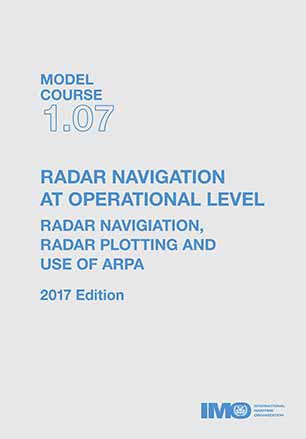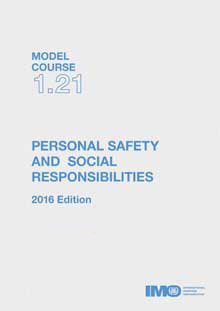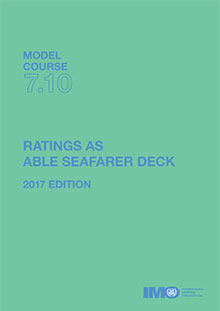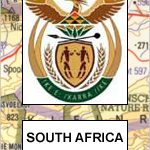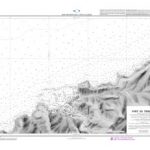Category Archives: Travel Guides
Manual on Oil Pollution (Section II, Contingency Planning), 2018 Edition
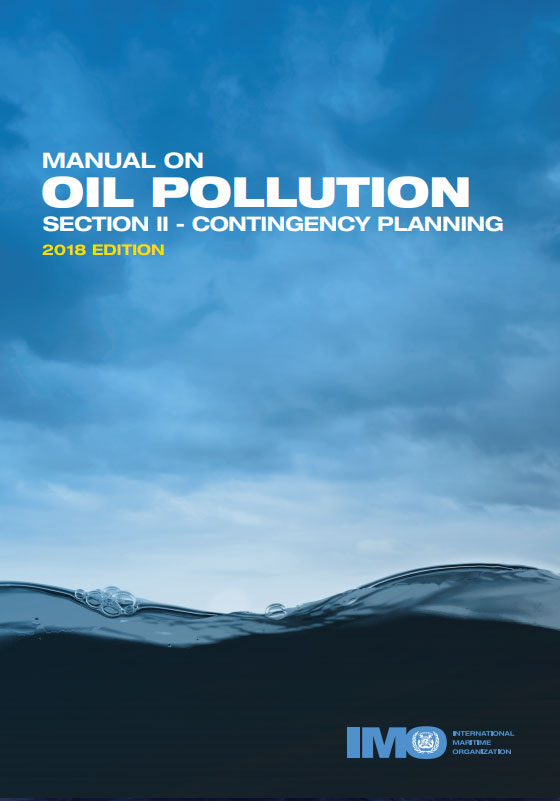
This publication aims to assist governments in establishing a national oil spill response system and, in developing or revising their national oil spill contingency plans. The manual also includes information related to contingency planning for offshore installations, sea ports and oil handling facilities.
Advanced Training for Chemical Tanker Cargo Operations, 2016 Edition – IMO Model Course
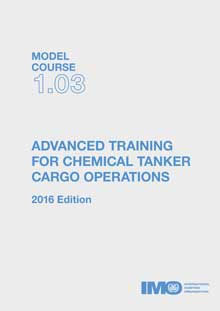
This course provides training for masters, chief engineer officers, chief mates, second engineer officers and any person with immediate responsibility for loading, unloading, care in transit, handling of cargo, tank cleaning or other cargo-related operations on chemical tankers. It comprises an advanced training programme appropriate to their duties on chemical tankers for their ability to
Guide on oil spill response in ice and snow conditions, 2017 edition
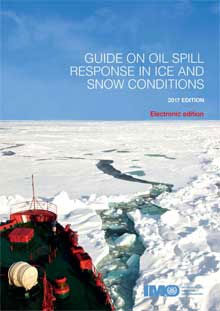
This Guide aims to identify and describe the key considerations directly associated with a response to a marine oil spill in ice and snow conditions anywhere in the world. By addressing elements of planning and preparedness for marine and coastal oil spills, in addition to the fate and behaviour of oil spills in ice and
Official Records of the International Conference on Limitation of Liability for Maritime Claims, 2016 Edition
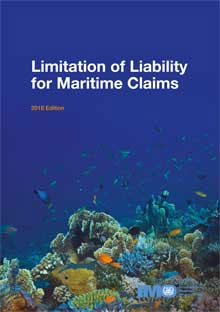
This publication presents the:- Convention on Limitation of Liability for Maritime Claims, 1976 (LLMC 1976)- LLMC Protocol 1996 as amended by resolution LEG.5(99)- Consolidated text of substantive provisions of LLMC 1976 as amended by the LLMC Protocol 1996 and including its amended limits of liability.
Basic Training for Ships in Polar Waters, 2017 Edition – IMO Model Course
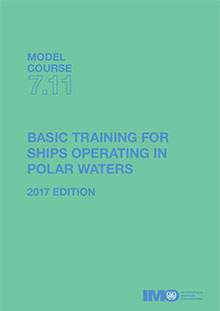
This basic course provides training to navigation officers to operate ships in polar waters and to address those additional provisions deemed necessary for consideration beyond existing requirements of the SOLAS and MARPOL Conventions, in order to take into account the climatic conditions of polar waters and to meet appropriate standards of maritime safety and pollution
Response to a Marine Oil Pollution Incident, 2016 Edition
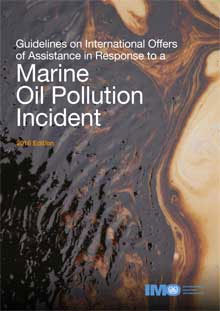
This publication provides Guidelines on international offers of assistance (IOA) in response to a marine oil pollution incident and is designed for use by any country, particularly parties to the International Convention on Oil Pollution Preparedness, Response and Co-operation, 1990 (OPRC 1990), as a tool to assist in managing requests for spill response resources and
IGF code: international code of safety for ships using gases or low flashpoint fuels
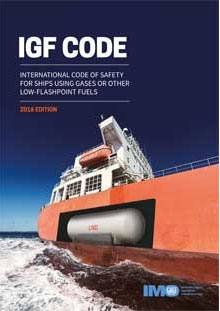
The purpose of this Code is to provide an international standard for ships using low flashpoint fuel, other than ships covered by the IGC Code. The basic philosophy of this Code that comes into force on 1 January 2017 is to provide mandatory provisions for the arrangement, installation, control and monitoring of machinery, equipment and
Life-Saving Appliances (Inc. Lsa Code): 2017
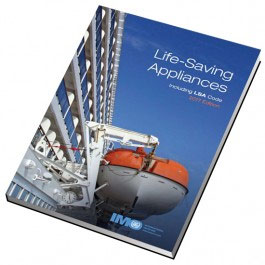
This publication contains the three most important IMO instruments dealing with life-saving appliances, namely the International Life-Saving Appliance (LSA) Code, the Revised Recommendation on Testing of Life-Saving Appliances and the Code of Practice for Evaluation, Testing and Acceptance of Prototype Novel Life-Saving Appliances. It provides international requirements for the life-saving appliances required by chapter III
MARPOL, Consolidated Edition 2017
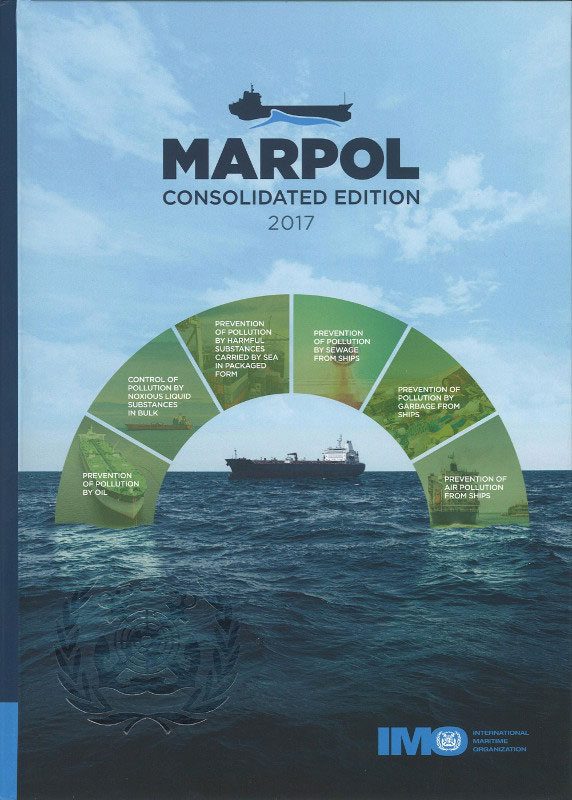
The International Convention for the Prevention of Pollution from Ships, 1973 (MARPOL Convention), is concerned with preserving the marine environment through the prevention of pollution by oil and other harmful substances and the minimization of accidental discharge of such substances. Its technical content is laid out in six Annexes, the first five of which were
MARPOL Annex VI and NTC 2008, 2017 Edition
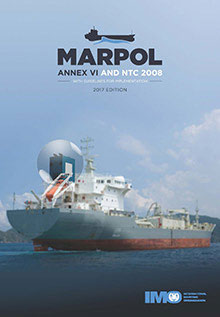
MARPOL Annex VI, Regulations for the prevention of air pollution from ships, covers the requirements in respect of both emissions to air (chapter 3) and energy efficiency (chapter 4). The requirements for control of nitrogen oxides (NOx), given by chapter 3, are supplemented by the mandatory NOx Technical Code 2008 which covers the testing, survey
IMSBC Code and Supplement, 2018 Edition
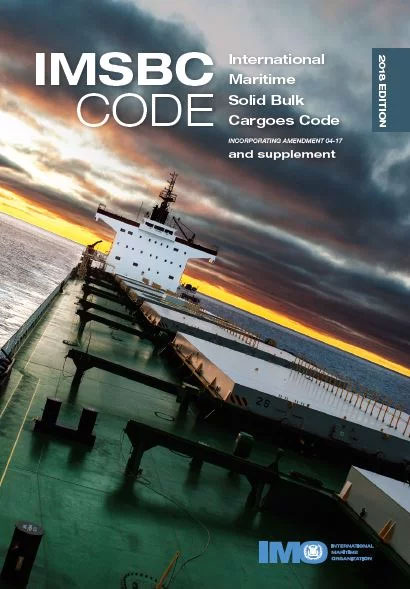
The IMSBC Code, adopted on 4 December 2008 by resolution MSC.268(85), entered into force on 1 January 2011, from which date it was made mandatory under the provisions of the SOLAS Convention. The present edition incorporates amendment 04-17, which may be applied from 1 January 2018 on a voluntary basis, anticipating its envisaged official entry
International SafetyNET Manual, 2017 Edition
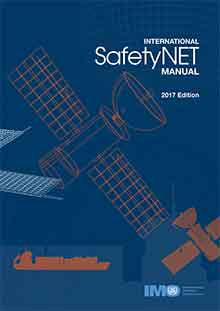
SafetyNET is an international automatic direct printing satellite-based service for the promulgation of Maritime Safety Information (MSI), navigational and meteorological warnings, meteorological forecasts, Search and Rescue (SAR) information and other urgent safety-related messages to ships and fulfils an integral role in the Global Maritime Distress and Safety System (GMDSS).This Manual describes the structure and operation
NAVTEX Manual, 2017 Edition
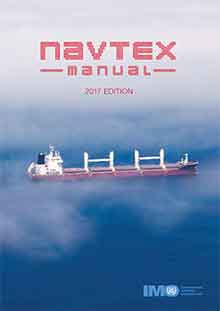
NAVTEX is an international automated direct-printing service for promulgation of navigational and meteorological warnings and other urgent information to ships. It is one of the two principle methods used for broadcasting maritime safety information in accordance with the provisions of the International Convention for the Safety of Life at Sea, 1974, as amended. It has
Low Cost, Low Technology Compliance Monitoring, 2017 Edition
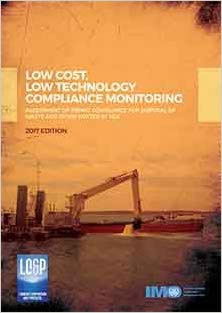
The objective of this publication is to provide practical information about using low cost and low technology approaches that are useful for monitoring compliance with permit conditions associated with ocean disposal of waste materials or other matter. The primary audiences for this guidance are countries that are in the early stages of developing waste assessment
Guidelines for the Implementation of MARPOL Annex V, 2017 edition
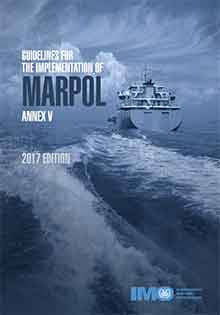
This publication contains:- the 2017 Guidelines for the implementation of MARPOL Annex V (resolution MEPC.295(71));- the 2012 Guidelines for the development of garbage management plans (resolution MEPC.220(63)); and- the consolidated text of MARPOL annex V, including amendments adopted by resolution MEPC.277(70).IMO Publications are available in paper, e-book and e-reader formats. Instructions how to download digital
Ships` Routeing: 2017 Edition
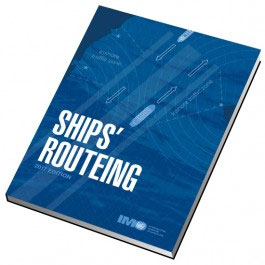
Both the safety of shipping and the cleanliness of oceans are promoted in many ways, one of which is the continuing development of routeing measures to control the navigation of vessels and to monitor their progress.The measures that are described or defined in parts A and H of this publication are individually described in parts







